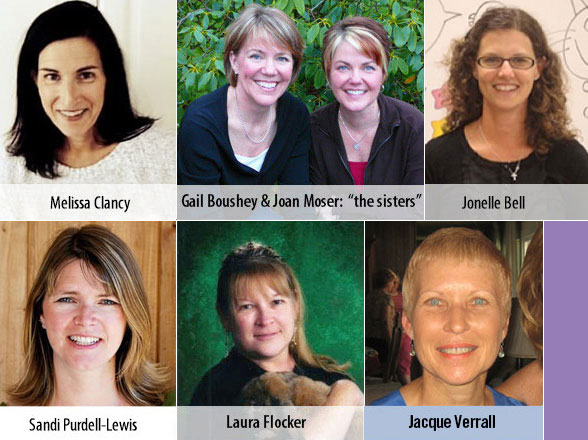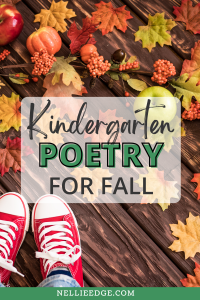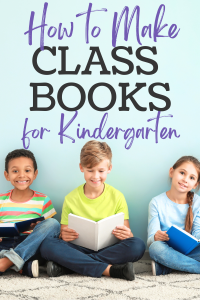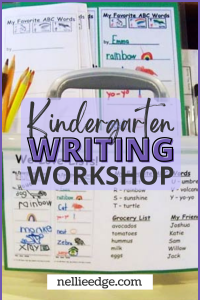Good Behavior Can and Must Be Taught
This was a Professional Development Workshop: See Details!
Glimpses of Julia Barto’s classroom:
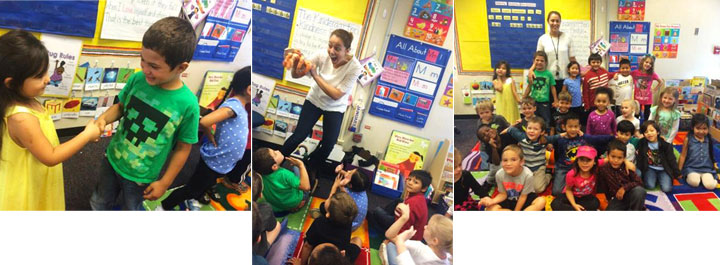
Give unconditional positive regard…
Teach children to refocus and change their behavior…
Believe they will behave…
Teach children to work hard and to be kind…
Create joyful pathways to learning!
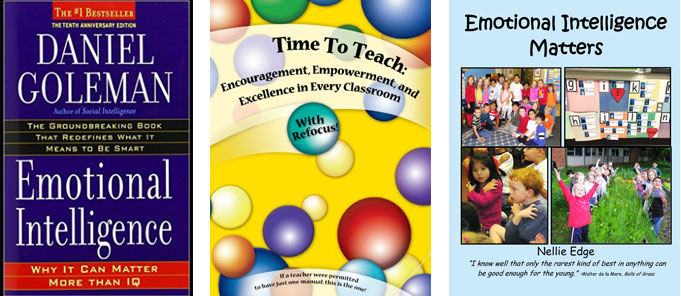
It matters to consciously develop Emotional Intelligence through positive discipline and joyful responsive teaching! As educators with high expectations, this is our contribution to healthier schools and healthier communities. We can—and must—bond with our students, teach them to work hard and be kind, and teach good behaviors for success in school—and life!
For over three decades Nellie Edge Seminars has focused on building Emotional Intelligence through joyful pathways to literacy. One way was by studying and documenting accomplished teachers. Here are a few articles from our unpublished manuscript Emotional Intelligence Matters:
- Create in Kindergarten a Child’s Garden of “Experts”
- Talking Circles: Friends Build Speaking and Listening Skills
- Hello/Goodbye Book Builds Home-to-School Bonds
- Sing, Sign, Spell, and Read: Thank You!
- Emotional Intelligence is More Important than IQ

Award-winning kindergarten colleague Jacque Verrall, NBCT, has written extensively on positive discipline and the value of dramatic play in kindergarten, and I share some of her writing with permission.
- Discipline Is the Absolute Hardest Part of Teaching: Why I Use Positive Discipline
- Wrinkled Heart Lesson
Jacque writes, Never do anything for a child that they are perfectly capable of doing themselves. When you do, you rob them of the opportunity to feel competent. Feeling competent builds self-esteem.
We continue to be inspired by the insightful work of Dr. Becky Bailey, which is documented on her blog, Conscious Discipline, and her latest book: Conscious Discipline Building Resilient Classrooms Expanded & Updated Edition. We highly recommend to all educators her PBS video Shifting from Fear to Love and the Becoming the Best You Can Be.
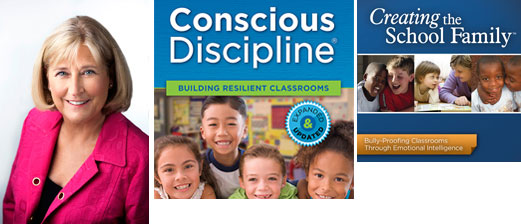
Responsive Classroom also has some excellent free videos that provide a vision for whole school climates that nurture positive social and emotional skills. Please see the Responsive Classroom model video for an inspiring introduction.

We like to follow the insightful blogs of Sally Haughey at fairydustteaching.com and especially appreciate the September 20, 2015 blog The Peace Table about conflict resolution in her classroom. She writes, “One of the best gifts from Montessori education has to be the concept of the Peace Table… a conflict resolution tool for the classroom. Traditionally, there is a peace rose that the children can present to a child they have a conflict with and ‘go’ to the table to work it out.”

Our esteemed kindergarten colleague, Diane Bonica (now retired), maintains a delightful Pinterest board featuring weekly newsletters documenting teaching that honors the magic of childhood and builds a love of learning.
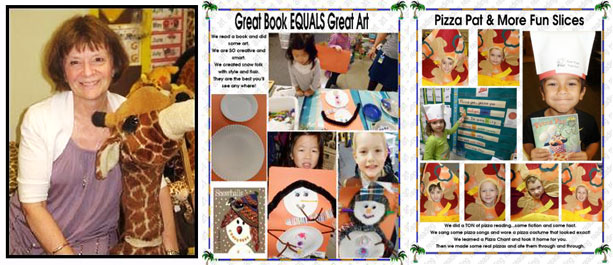
Peter Johnston’s book, Choice Words (Stenhouse, 2004), further illuminates how our words can change children’s lives and how thoughtful language develops a growth mindset.
He shares that a teacher might say, ‘I see you know how to spell the beginning of that word.’ Johnston continues, The most important piece is to confirm what has been successful (so it will be repeated) and simultaneously assert the learner’s competence so she will have the confidence to consider new learning. Marie Clay (1993) refers to this attending to the ‘partially correct.’ Its significance cannot be overstated. Read excerpts from Choice Words.
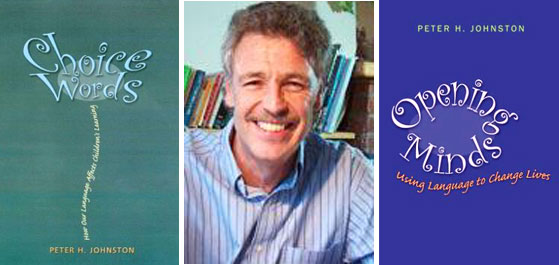
Study Nellie Edge’s 2016 Literacy Award Teachers websites and blogs for engaging glimpses into classrooms where nurturing Emotional Intelligence and using Positive Discipline are the foundation for high academic standards.
